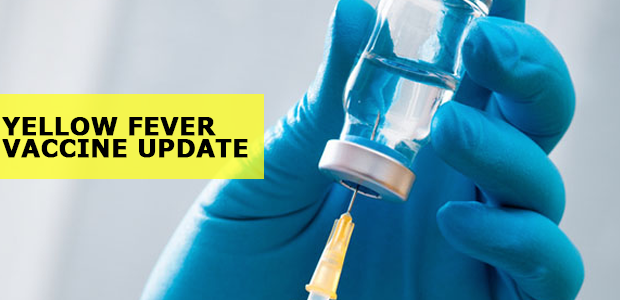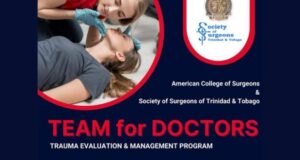The Ministry of Health of Trinidad and Tobago recently adopted the one dose Yellow Fever policy as outlined by the Strategic Advisory Group of Experts [SAGE] on immunization. In May 2013 the SAGE concluded that a single dose of Yellow Fever vaccination will confer life-long immunity and re-vaccination every ten years was no longer necessary for the general public.
Despite having the last case of Yellow Fever in Trinidad in 1979, it must be re-iterated that Trinidad and Tobago remains endemic for the Yellow Fever Virus which is present among the Red Howler Monkey population found in forested areas of Trinidad and Tobago.
In light of this the Ministry of Health has also taken a decision, based on the recommendations by the Advisory Committee on Immunization Practices (ACIP) dated 26 February, 2015 (Published by CDC on June 19, 2015/64(23):647-650) that a single primary dose of yellow fever vaccine provides life-long protection, and is adequate for most travelers. The ACIP further recommended a booster dose of Yellow Fever Vaccine for at-risk groups such as lab personnel, hunters etc.
This recommendation led to the amendment of Annex 7 of the International Health Regulations [IHR] 2005 by the World Health Assembly on 11 July 2016, which now states that travelers no longer need to be re-vaccinated, and booster doses are no longer required for international travel.
The U.S. Centers for Disease Control and Prevention (CDC) recommend postponing Travel to countries where yellow fever risk exists or outbreak and yellow fever Vaccination for pregnant women, until 9 months after delivery. If a pregnant woman is traveling to, or transiting through areas where a vaccination certificate is required for Yellow Fever where YF is not currently a threat, the CDC advise carrying a physician’s waiver certificate on the immunization record.
Additionally, the Grading of Recommendations, Assessment, Development and Evaluation (GRADE) evaluation found that the following high risk groups need to be given booster doses of Yellow Fever Vaccine:
1) Hematopoietic stem cell transplant recipient
2) HIV-infected persons
In both cases the study found lower rates of Yellow Fever vaccine specific neutralizing anti- bodies.
Further, the following groups in Trinidad and Tobago would require a booster dose of Yellow Fever Vaccine every ten years due to the high risk of exposure to the virus in their work, or exposure to the forested areas where there is circulating virus among the Red Howler Monkeys/mosquito vectors.
This would ensure a robust levels of Yellow Fever specific antigen antibodies among these high risk groups.
1) Veterinary personnel
2) Laboratory workers who routinely handle wild type Yellow Fever Virus.
3) Agricultural personnel who frequent the forestry areas
4) Hunters
5) Forest workers
6) Adventure seekers (e.g. hikers and campers)
7) Defense force personnel
8) Health workers that frequent forestry areas
This information is for circulation among all staff members and dissemination to relevant groups.
Thank you.
Dr. Kumar Sundaraneedi
Ministry of Health
OFFICE OF THE MEDICAL DIRECTOR
 T&T Medical Association
T&T Medical Association





